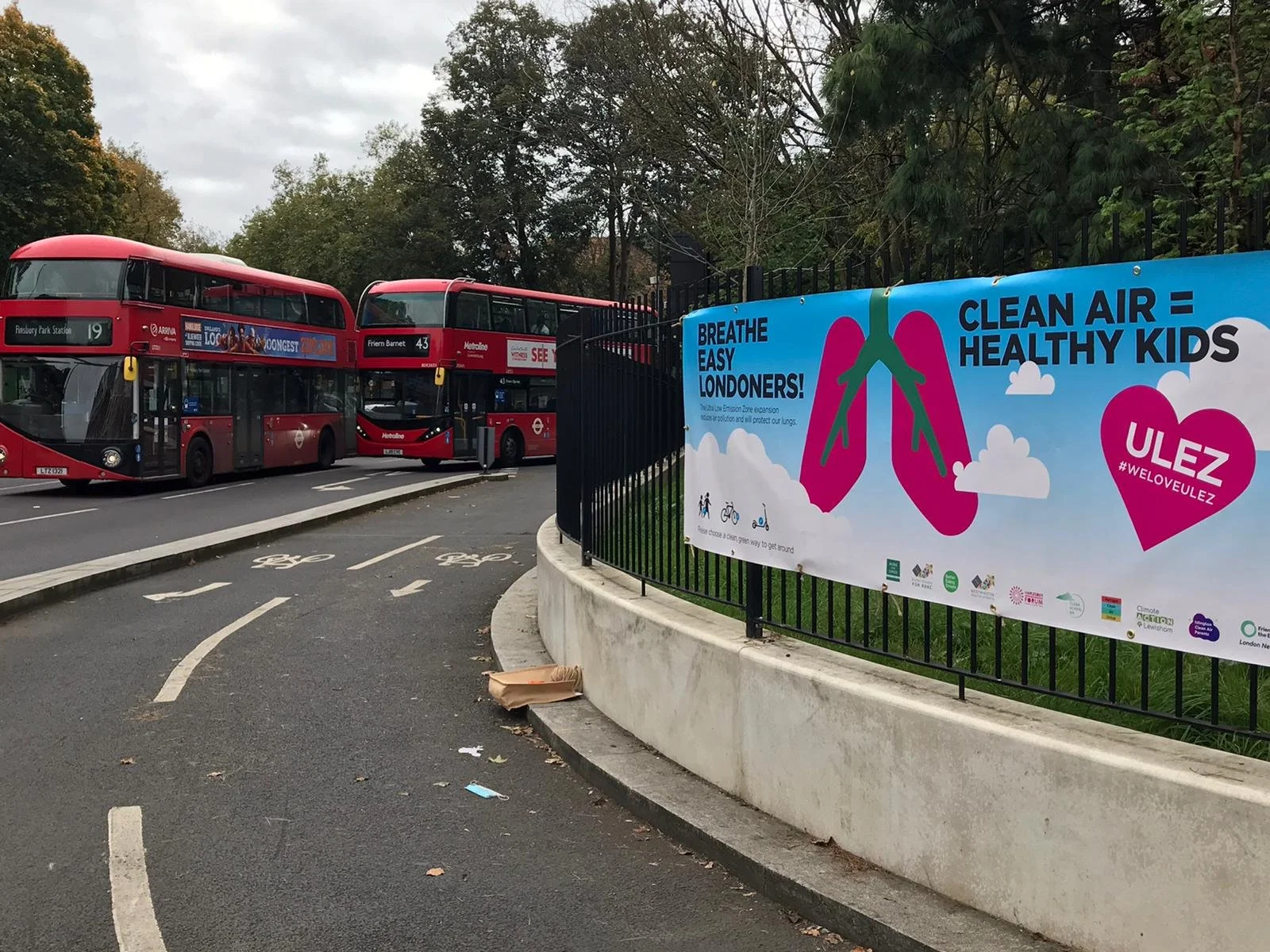London’s Ultra Low Emission Zone
Image: Islington Clean Air Parents
London’s Ultra Low Emission Zone (ULEZ) is the world’s largest pollution charging zone. It was first introduced in 2019 and has been expanded twice, becoming London-wide in 2023. The purpose of the ULEZ is to clean up the air by limiting the number of high-polluting vehicles on London’s roads, with a daily charge to enter the zone. Petrol cars and vans that do not meet the Euro 4 emissions standard (first registered after 2006) and diesel cars and vans that do not meet the Euro 6 standard (first registered after 2015) are among those charged to enter the zone. Newer diesel vehicles are more affected because diesel is the single biggest contributor of nitrogen oxides (NOx) and nitrogen dioxide (NO2) on our roads.
Mums for Lungs campaigned strongly from 2018 for a London-wide ULEZ, in order that all Londoners could benefit from the cleaner air the scheme brings. The ULEZ has contributed to substantial reductions in NO2 concentrations with a 56 per cent reduction in central London, 47 per cent in inner London, and 37 per cent in outer London since 2017. Every trip that those who have changed their vehicle make is now less polluting, whether inside or outside the zone. The ULEZ has also led to people giving up their vehicle entirely, or switching to more sustainable transport options.
“It is the largest impact on air quality from a traffic management scheme I have ever seen.”
What’s good about the ULEZ?
The ULEZ helps to reduce the inequality of exposure to air pollution that is experienced by people of colour, and by those on lower incomes. These groups are disproportionately affected by air pollution, and urgently need action to clean up the air where they live and work.
Any money received from the ULEZ is reinvested into improving the transport network - including its cycleways, buses and tube - and helping to improve London's air quality.
The benefits of the cleaner air inside the zone are transferred to the surrounding area, as people from further out who drive into the zone will be driving cleaner cars.
What comes next?
We would like to see the Mayor continue his ambition to tackle air pollution by working to phase diesel out London-wide, alongside a significant improvement in public transport in the less well-served parts of the capital.

